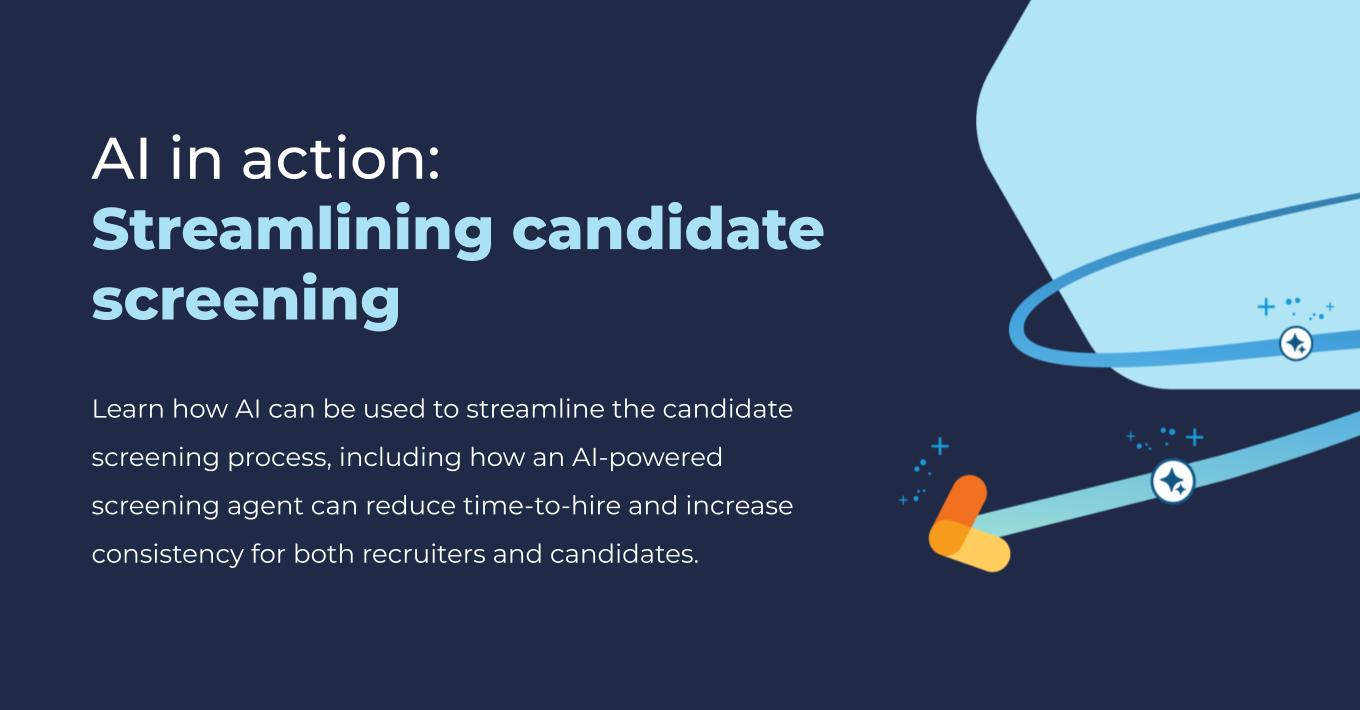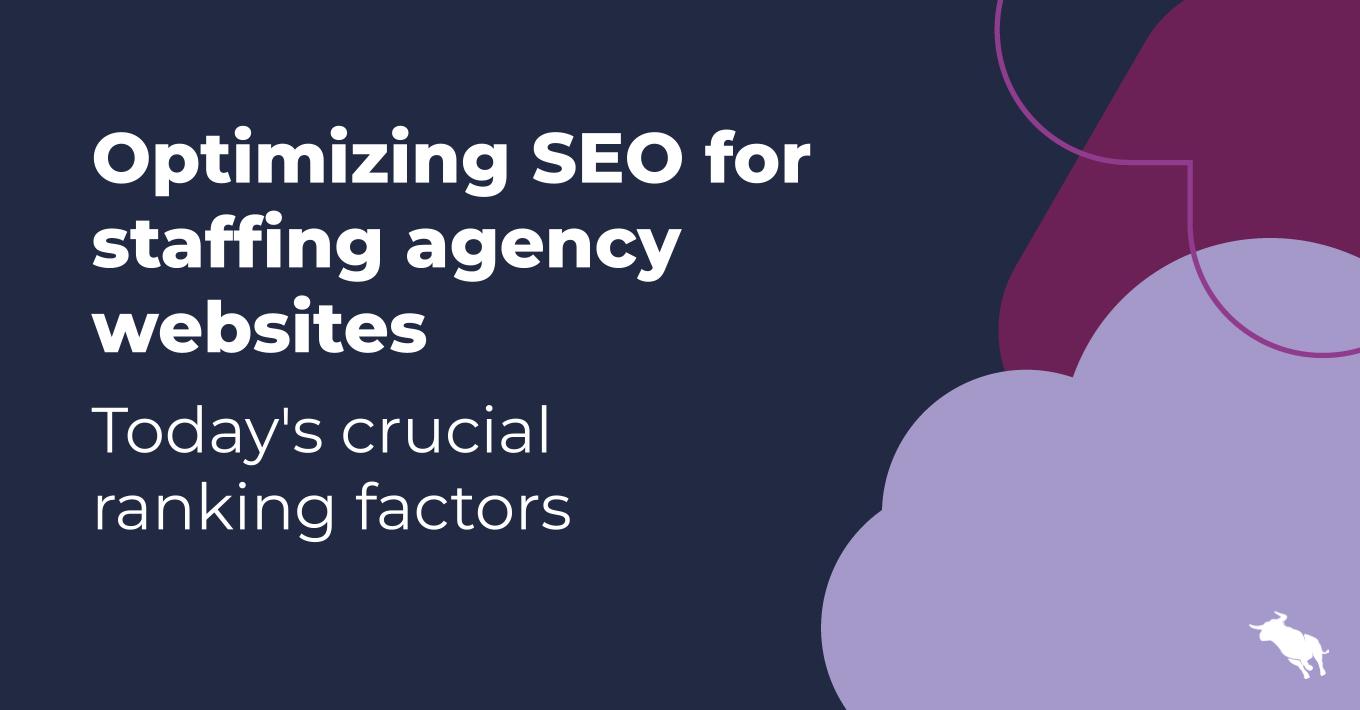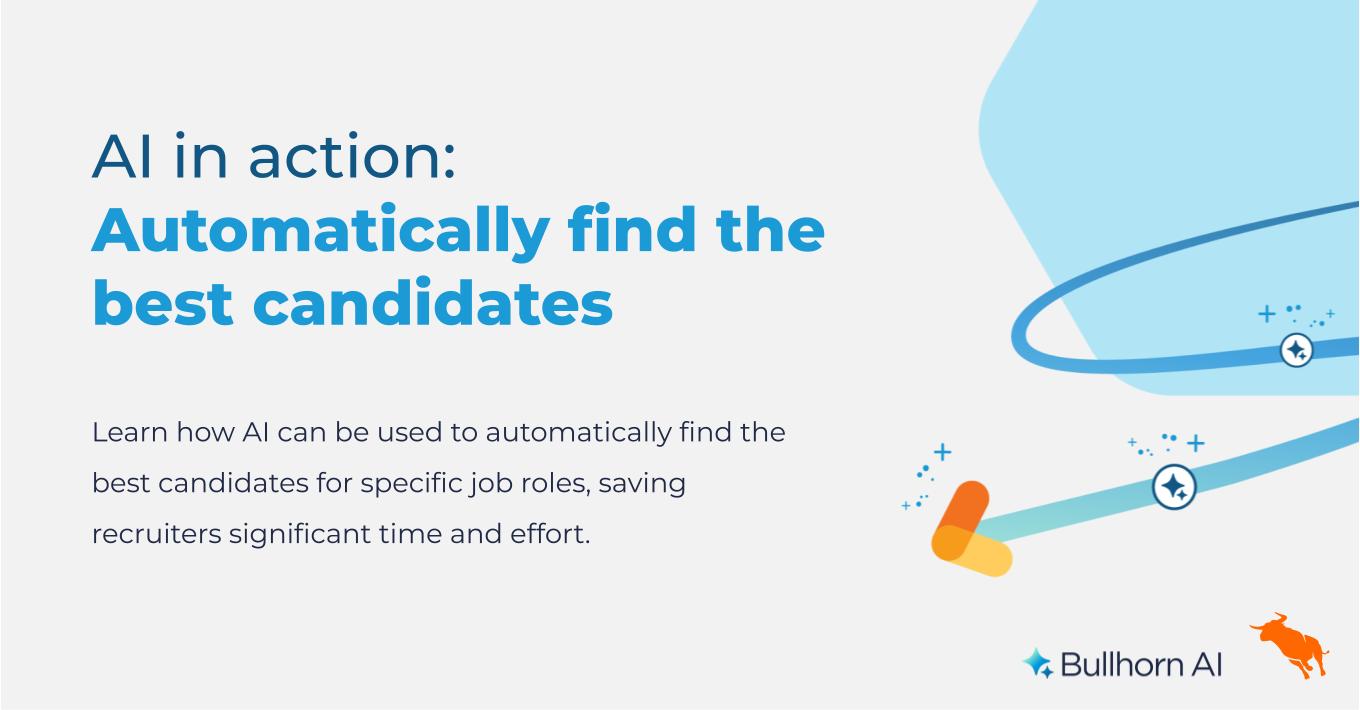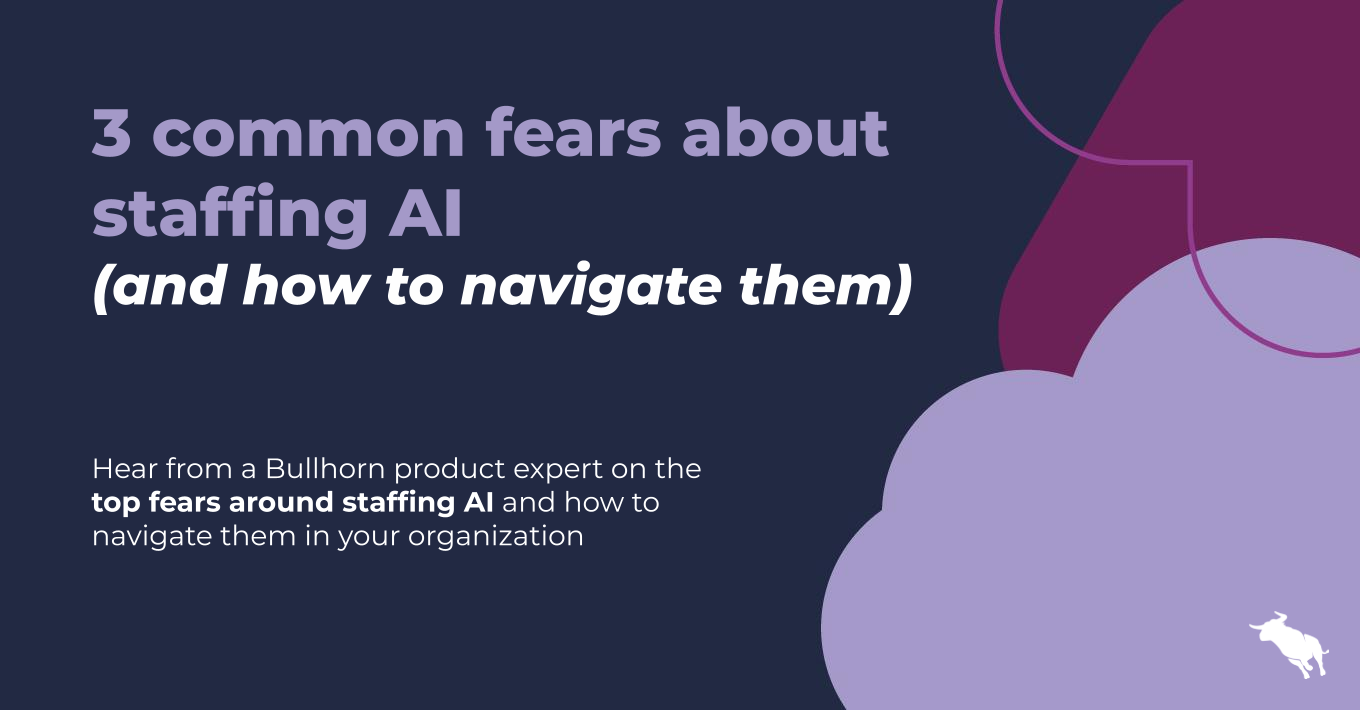Creating a culture of productivity: Insights from recruitment experts
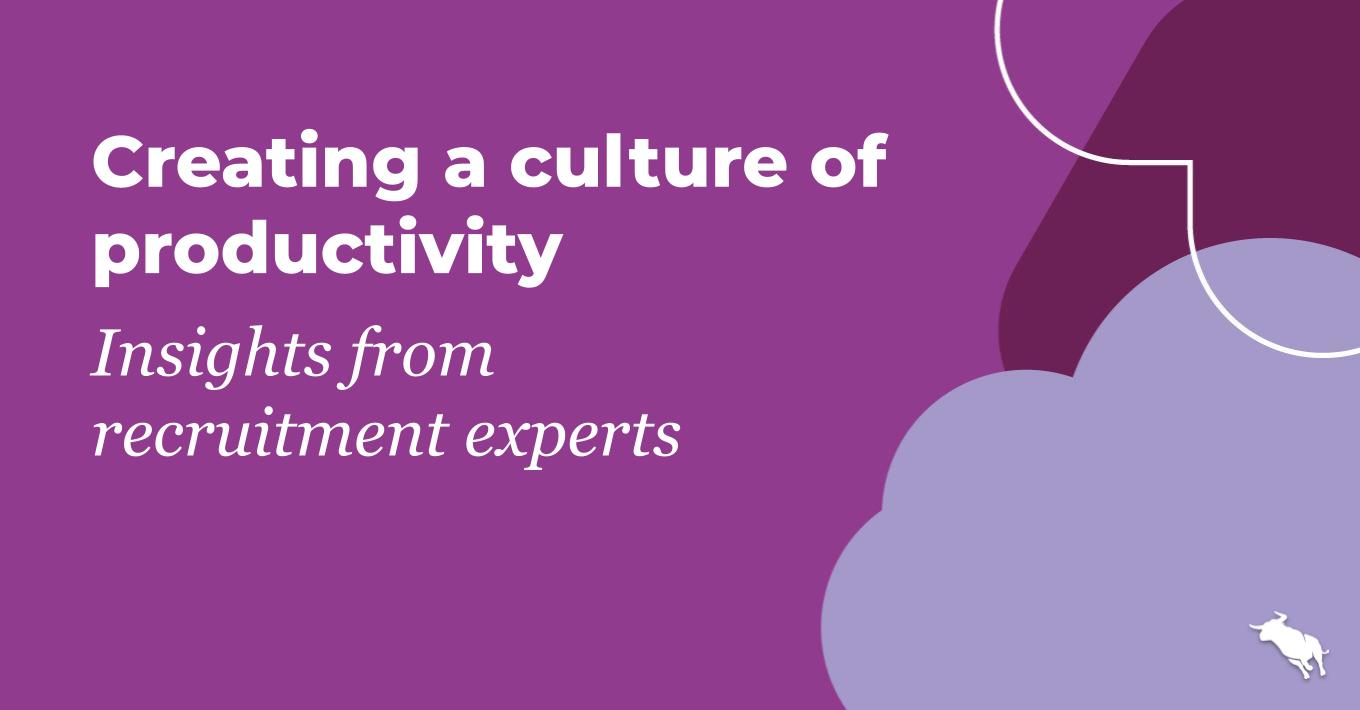
In the constant evolution and fluctuation of the recruitment industry, maintaining high performance and productivity can pose a challenge. In a recent webinar hosted by Bullhorn, experts from across recruitment shared their thoughts and experiences on how to navigate these challenges – especially with the help of technology. Read on for their insights on how to foster a culture of growth and productivity.
The power of mindset
“Productivity can mean so many different things,” said Lloyd Gordon, CEO of Focus Cloud Group, emphasising that it’s about “being close to or at your best.” This mindset of striving towards one’s best, coupled with setting and pursuing new goals consistently, is essential in a high-performance culture. Recruitment, like any other sector, demands resilience and continuous improvement. “You push yourself in order to reach that goal, and when you reach that goal, then you’ve got to have another goal,” Gordon explained.
Michelle Jones, Learning and Development Director at RBW Consulting, echoed this sentiment, noting the importance of clear roadmaps for newcomers in the industry. “It’s about having a start point, but then building on it,” she said, stressing the need for structured growth plans to ensure employees are not overwhelmed but are steadily progressing toward their potential.
Diverse career paths and L&D strategies
The linear career path is slowly becoming a thing of the past in recruitment. Companies like RBW Consulting have recognised the value of offering multiple career pathways that cater to different strengths. Jones pointed out that “sometimes the best billers are not the best leaders,” highlighting the importance of providing options for career progression that don’t necessarily involve managing a team. This approach ensures that employees can advance based on their strengths, leading to a more engaged and productive workforce.
Furthermore, Learning and Development (L&D) strategies have evolved to support these diverse paths. From 90-day roadmaps to personalised development plans, the focus is on equipping employees with the skills they need to excel in their chosen direction.
Back to basics: the key to consistency
Shayne Simpson, Group Managing Director of Ascent International Group, emphasised the importance of simplicity, especially during challenging times. “Stick to the basics and keep it simple,” he advised, underlining that consistent execution of fundamental tasks is often the key to success. In recruitment, where roles vary significantly, matching people to the tasks at which they excel is crucial. Simpson noted that “if they prefer to do it, they’re probably better at it,” highlighting the importance of task alignment in driving productivity.
Industry forecast: the role of data, AI, and automation
The future of recruitment is inevitably tied to advancements in technology. Data analytics, AI, and automation are transforming the way businesses operate, providing new tools to enhance productivity and decision-making. “One of the things we have to do as leaders is try and create and foster a culture of productivity,” said James Osborne, co-founder of The Recruitment Network. With the right tools, companies can better manage their workflows, ensuring that every team member is working efficiently and effectively.
Technology in learning and development
Technology is not just reshaping recruitment processes but also how companies approach Learning and Development. The integration of digital tools into L&D programs allows for more personalised and scalable training solutions, which are essential in today’s fast-paced environment. These tools make it possible to deliver customised learning experiences that can adapt to the needs of each employee, ensuring that they acquire the skills necessary to thrive in their roles.
Business development: the key to growth
As automation handles more of the routine tasks in recruitment, it frees up recruiters to focus on what really drives growth: business development. “Automation allows our teams to spend less time on repetitive tasks and more time on strategic activities,” noted Shayne Simpson. This shift enables recruitment professionals to dedicate more energy to building relationships, identifying new opportunities, and closing deals.
James Osborne emphasised the importance of fostering a culture where Business development is a priority. “We need to ensure that our teams understand the value of business development,” he said, “because it’s the lifeblood of any recruitment business.” As recruitment agencies increasingly leverage technology to optimise their operations, the role of business development becomes even more critical, ensuring that growth is sustainable and aligned with market demands.
The debate on KPIs
A debate in the recruitment industry revolves around the use of Key Performance Indicators (KPIs). While some see them as essential for tracking progress and ensuring accountability, others argue they can be restrictive and demotivating. In the discussion, it was evident that the effectiveness of KPIs depends on how they are implemented. They should be flexible and aligned with individual career paths and company goals, rather than being one-size-fits-all metrics.
Embracing change for future growth
The recruitment industry is at a crossroads, where traditional methods are being challenged by new technologies and approaches. However, the essence of success remains the same: consistent execution of fundamentals, a strong focus on personal and professional growth, and the ability to adapt to changing circumstances.
By leveraging the latest technology, embracing diverse career paths, and fostering a mindset of continuous improvement, recruitment leaders can navigate the complexities of the industry and drive their teams toward sustained success. The insights shared by industry leaders in this discussion provide a roadmap for those looking to thrive in an ever-evolving landscape.
If you want to learn more about how to use business intelligence and automation to grow your recruitment agency, sign up for our webinar ‘Top metrics every growing agency should track (and how to improve them) here’.
